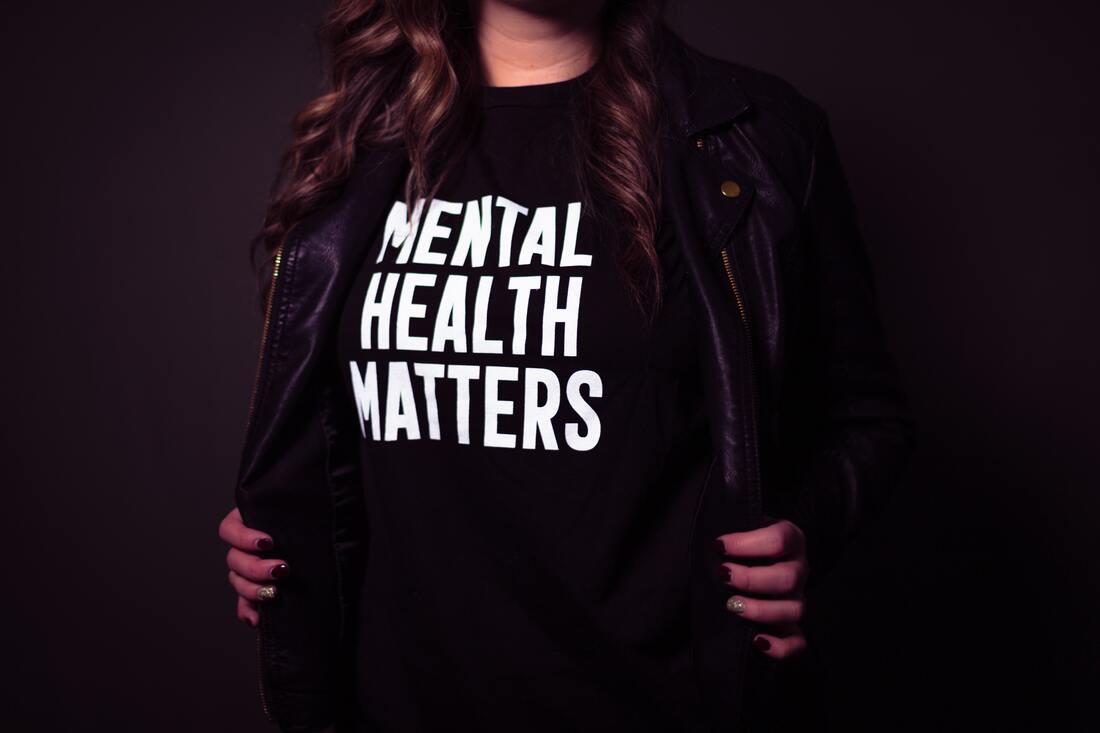|
Back to school can be an exciting and scary time for kids. Whether it's going to school for the first time, going to a new school, or just adjusting to being in a new class, all of this can cause anxiety in kids.
By: Kelly Halonen, RSW, MSW Marijuana has had its controversy over the years. With it now being legal in Canada, more people are exploring its effecton their mental health. While not for everyone, some people find that marijuana can help their anxiety; and though I don’t believe that it should be used as a main coping skill, it has its benefits. Here’s some basic information about marijuana and what we know about its effects. Please note that this article may be a triggering for some and we recommend always discussing (prior to use) with your family physician and your mental health provider.
Whether you’ve made a New Year’s Resolution to focus on your wellbeing, or simply feel like now is the right time, you may be contemplating speaking with a therapist. You might have come to this decision easily, or maybe it’s something you have contemplated for a long time. Whatever the reason, sometimes the jump from deciding to speak to someone to scheduling your first appointment can be daunting. You may ask yourself: what is the therapist going to ask me to do? How much should I share about myself? How can I trust a total stranger? What if they judge me?
Seasonal affective disorder (SAD) is a type of depression that is related to changes in seasons. SAD begins and ends at about the same times every year and, if you're like most people with SAD, your symptoms start in the fall and continue into the winter months, sapping your energy and making you feel moody.
At first, it was the crying. The hyperventilating and crying. Crying so hard that you can’t breathe. Crying so much that you wonder when you’re going to run out of tears. You can’t stop it. You just have to let it out. People try to comfort you, but them being close makes it harder to breathe. Makes you cry harder.
When I used to hear “emotional manipulation,” I’d usually think of a five-letter word that I despise - abuse. Four years later – I now think of myself.
There are a number of different modalities or types of counselling and therapy. Here is information on some common types.
This season of Grey's Anatomy focuses on various mental health-related issues and topics along with their biggest battle since the loss of Mc Dreamy, the Covid-19 Pandemic. Specifically, we watch Joe struggle during some flashback episodes where EMDR is used to process her complex trauma. So what exactly is EMDR?
By: Kelly Halonen, MSW, RSW Have you ever tried boxing? I have found that it is a great way to get exercise and benefit my mental health. You can practice with a partner or do it on your own using a punching bag or just punching the air. Boxing can be great for any skill level.
By: Kelly Graham, MSW, RSW While being a new step-parent can have its challenges, it can also be very rewarding. In movies you see step-parents portrayed as evil, which is the last thing you want to be in real life.
By: Kristen Sohlman, MACP, RP After having endured a challenging or difficult experience such as grief and loss, trauma, an accident, or a significant change in life such as retirement, major illness, or diagnosis of a degenerative disease, one may begin to question: What is the purpose and value of my life? Why is this important?
By: Laurie Vance, MSW, RSW, Cert. Forest Guide Investing in a mentally healthy workforce is good for business!
The data tells us 1 in 5 Adults will experience a diagnosable mental illness in any given year and more than 50% of those will go untreated. Respecting and treating mental illness on par with other medical illnesses like diabetes or heart disease is the first step to improving employee quality of life, which is the foundation of an effective workplace. As a clinical counsellor, I have worked with a global Employee Assistance Provider (EAP), I know full well the harsh impact of work-related stress and in turn the physical, mental, psychological and financial damage that many people experience. By: Seija Grant, MEd CP, RP When I talk about ‘finding a good fit’ I am referring to the therapeutic relationship between client and therapist. One of the most important factors of therapeutic success is having a strong therapeutic alliance. The importance of this is significant, as you (the client) need to be able to trust the therapist enough to share some of the most vulnerable parts of yourself.
By: Kristen Sohlman, MACP, RP Did you know that gardening helps to support positive mental health? Here is how!
By: Cassandra Nordal Returning to work after a lay off or leave in general, is difficult. You add a pandemic onto that and well, how do we begin to function properly?
By: Laura Groulx, MSW, RSW Typically, as a parent, you want the best for your child. You want your child to both survive and thrive. The Western society we live in is individualistic, meaning that success is often viewed from an every-man-for-themselves type of perspective.
Because of this, life can feel competitive at times. For instance, perhaps at one time or another you felt that pressure to make it on that sports team, get into that school, land that perfect job, find that perfect relationship… and have that perfectly-behaved-and-over-achieving-child. THIS IS A TRAP. Seija Grant, MEd CP, RP I have now heard this account from several people, and am one of these people myself. Despite the ongoing trauma, state of chaos and challenges around this pandemic, there are some people who are relieved by the break from normalcy, and in fact maybe really needed the break. If this sounds familiar: don’t worry, you are not alone, nor is there anything wrong with how you’re feeling.
By: Jordan Gross, RN TBRHSC Right Now I am scared…. I am a Nurse and my job is to face the beast that the rest of the world is hiding from and is informed to avoid at all costs.
By: Kristen Sohlman, MACP, RP Are you feeling that the world has changed so much? Are you feeling helpless? Are you feeling sad? You may not be just depressed; you may be grieving. The grief response happens when there are significant changes in life, when things will not go back to the way they used to be, when there is a loss of normalcy, a loss of connection, when there is worry or fear, and all of this is hitting us in a short period of time.
By: Kelly Graham, MSW, RSW You’ve probably been bombarded with articles about how you should use your time in self-isolation to better yourself (learn a language, play an instrument, etc.). However, this can be hard for a lot of people. We are feeling stressed and anxious about what is happening in the world, and for some people that isn't easy to overcome.
By: Cassandra Nordal  This is obviously a scary time for us all. Hour by hour, we are watching our world change so drastically that we are all in a state of constant worry and panic. We have been focusing on the detrimental health risk and factors that this virus is causing, and now, we need to talk about the impact this is having on our mental health.
The idea of surviving isolation with your partner may spur mixed emotions. We are with our partners because we fell in love, so much so, that we have committed ourselves to this other person completely. Well, maybe not completely. Let’s get real: We love our partners, but sometimes too much of a good thing is, as they say, too much. Relationships still require a sense of individuality and independence. We all need our space - space is healthy! However, we may be finding that we have less space from our partner when many of us are spending more time at home. Here are a few ideas on how to cope with increased togetherness:
By: Seija Grant, Med CP, RP Wow! Things are feeling a little chaotic and overwhelming, and certainly anxiety-provoking out there. I am not immune to that as a therapist, and was thinking about what can be done to ease some of the mental (and physical) tension in our community. One such skill that can be cultivated and applied during these tough times is ‘Mindful Self-Compassion’ (MSC). I realize this may be a new concept for many of you, so I will give a brief overview of what this is and how this may be helpful during this tense time.
|
|
OverviewNWO’s source for all things relationships, mental health, wellness, lifestyle, and pandemic support. Kelly Magazine is a mental health outreach initiative created by Kelly Mental Health and supported by Kelly Mental Health Foundation, a non-profit organization dedicated to improving the community in the area of mental health.
|
Magazine |
Follow Us |
In support of @kellymentalhealthfndn |
© COPYRIGHT. ALL RIGHTS RESERVED. WEB DESIGN BY KMH




























